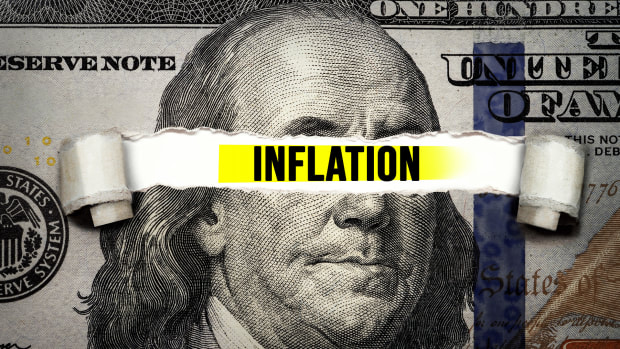Understanding Inflation
Inflation is a term that refers to the increase in prices of goods and services over time, resulting in the purchasing power of a currency decreasing. This means that with inflation, each unit of currency buys fewer goods and services. Inflation is typically measured by the Consumer Price Index (CPI), which tracks the average change in prices paid by consumers for a basket of goods and services.
There are several factors that can contribute to inflation, including demand-pull inflation, cost-push inflation, and built-in inflation. Demand-pull inflation occurs when there is an increase in demand for goods and services that outpaces supply, leading to higher prices. Cost-push inflation, on the other hand, occurs when the cost of production increases, causing businesses to raise prices to maintain profit margins. Built-in inflation is a result of past inflation trends and expectations, leading to wage-price spirals as workers demand higher wages to keep up with rising prices.
Factors Influencing Inflation
Inflation is influenced by a myriad of factors, with one of the primary ones being the overall state of the economy. When the economy experiences robust growth, demand for goods and services increases, leading to higher prices and inflation. Conversely, in times of economic downturn, lower demand may result in deflationary pressures.
Another crucial factor impacting inflation is the monetary policy established by central banks. By adjusting interest rates and controlling the money supply, central banks aim to stimulate or curb inflation. If interest rates are kept too low for an extended period, it can fuel inflation as borrowing becomes cheaper, leading to increased spending and demand in the economy. On the other hand, raising interest rates can help rein in inflation by reducing consumer spending and investment.
Different Types of Assets to Bet On Inflation
Gold has long been considered a traditional hedge against inflation. Historically, the price of gold tends to rise during periods of high inflation as investors seek a safe haven for their money. Investing in physical gold or gold-related assets like gold ETFs can be a way to protect your portfolio from the erosive effects of inflation.
Real estate is another asset class that can fare well during inflationary times. As the prices of goods and services increase, so does the value of real estate properties. Investing in real estate, whether through direct purchasing of property or real estate investment trusts (REITs), can provide a tangible way to benefit from inflation while potentially generating rental income or capital appreciation.
Stocks That Perform Well During Inflation
When inflation looms, investors often seek refuge in certain stocks that have historically shown resilience during periods of rising prices. These stocks are typically found in sectors such as consumer staples, healthcare, and utilities which offer products and services that are essential regardless of economic conditions. Companies within these sectors tend to have stable revenue streams and strong pricing power, making them less susceptible to the erosive effects of inflation.
Moreover, investing in companies that have the ability to pass on cost increases to consumers can also be beneficial during inflationary times. This includes businesses with strong brands, loyal customer bases, and unique competitive advantages that allow them to maintain or even increase their pricing without losing market share. By selecting stocks with these characteristics, investors can position themselves to potentially outperform the market when inflation takes hold.
Bonds and Inflation
In times of inflation, bonds can be a conflicting investment option for many investors. While conventional wisdom suggests that inflation erodes the value of fixed-income securities like bonds, certain types of bonds can actually perform well during inflationary periods. Treasury Inflation-Protected Securities (TIPS) are specifically designed to protect investors against inflation, as their principal value adjusts with changes in inflation rates.
However, it’s essential for investors to carefully assess the current economic environment and future inflation expectations before investing in bonds during inflation. Rising inflation generally leads to higher interest rates, which can negatively impact the value of existing bonds. Investors may consider diversifying their bond portfolio with a mix of TIPS, floating-rate bonds, and short-term bonds to hedge against inflation and mitigate risks associated with rising interest rates.















